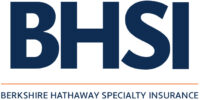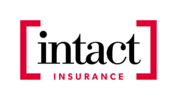38-year-old Karo Vanparrijs was pursuing a postgraduate degree in Claims and Risk management, working as a victim advocate legal aid officer at Belfius Insurance, and wrote a paper in Dutch titled: ‘De hiaten in de indicatieve tabel, voor vergoeding van de gezinsleden, bij zware letselschade na een ongeval, in het kader van een minnelijke regeling’ (The gaps in the indicative table, for compensation of family members, in cases of severe personal injury following an accident, in the context of an amicable settlement), to complete that study. She showed in her publication that the indicative table needs re-evaluation and that family members are forgotten in many cases. We had a conversation with her and probed her rationale and expectations.
Can you briefly introduce yourself? And what waters have you already swum through in
your career?
Karo Vanparrijs: After my studies in remedial education, I started working as an educator in
special youth care when I was 20. During that job, I took a master’s degree in criminology and after working in youth care for seven years, I then chose, for personal reasons, to make a career switch and ended up in the insurance sector, specifically legal aid. After working as a claims manager for seven years, I then joined Belfius Insurance, where I had the opportunity to pursue the postgraduate degree. At Belfius, I work in legal aid and very severe personal injury which is what my paper is also about.
How do you deal with these surely psychologically heavy files?
Karo Vanparrijs: As I said, I worked as an educator and in special youth care you deal with
placed children between 0 and 18. You work in a living group, and I find that emotionally
tougher than what I do now. Now I go into people’s homes for a particular case, but I can get it off my chest. Just recently I went to a family’s home where one of the parents had died in an accident. Of course, that touches me, being a mum myself and having a partner. But that is my way of helping those people and I can place it that way. I, on the other hand, will never do a file on someone I know, that’s not ethically allowed either.
Why did you follow the Postgraduate Course in Claims and Risk Management and what
can you apply from it in practice today?
Karo Vanparrijs: That was a very conscious choice even though I had to apply within Belfius
Insurance to take the course. I wanted to broaden my horizons around insurance and look
beyond legal aid. I was much less knowledgeable about other areas of insurance although
clients I meet automatically present me with broader insurance questions. The training covered everything like claims management, car and fire insurance and, of course, risk
management. Today, I find that I mainly apply the tips and tricks that very experienced private investigators and inspectors came to share with us during the training. In addition, I
can now give basic advice on other areas of insurance while also participating more in discussions on insurance issues in the office.
Why exactly did you choose the topic of personal injury/compensation family members in
your paper?
Karo Vanparrijs: Personal injury is my thing, of course. And because I meet people dealing
with severe personal injury, and especially their families, I notice that this has a very big
impact on them. And at the same time, I feel that Belgian law and the Belgian state fall
considerably short in this respect, especially compared to our neighbouring country, the
Netherlands. I wanted to do something about that, as the postgraduate course encouraged
us to choose a topical issue to address.
How do you explain our failure to do so?
Karo Vanparrijs: That indicative table (insurance-wise, the damage is compensated on this
basis) is made by judges and they look at damage settlements from their ivory towers: they
don’t come from practice and are not confronted with the day-to-day consequences. And
my paper is exactly about the amicable settlement where family compensation is almost
never awarded. Even in courts, this is very rarely done. And when it does happen, it is
sometimes 10 euros for the partner of a seriously injured person. I think we are very
reluctant in Belgium, also in terms of insurance. At the same time, I think we in Belgium are
not complainers. If something happens to a partner tomorrow, that is a care that is
automatically taken up by the other partner. But there has to be something in return
because it has a huge impact on daily life. And that stays under the radar in Belgium. If one
then looks at the Netherlands, one can only conclude that assistance and social security are
a lot more advanced there.
Do you think you will be able to set something in motion?
Karo Vanparrijs: A new indicative table is being worked on today and I hope something will
move. I would love to share my opinion, but I think I am too small a pawn for that. If I could
do my bit anyway, I think a lot of people would be grateful. I also get a lot of reactions to my
paper, such as from some lawyers who followed the Sanda Dia trial and made the link and
realised that the impact on the family of such an event is not always fully appreciated.
Why do you think your paper made it?
Karo Vanparrijs: Because it is a very topical theme and quite innovative. And, as I said
earlier, I am addressing a shortcoming in Belgium. At the same time, the indicative table is a
form of risk management, if you look at it more closely. We estimate the possible risks or
what the possible compensations could be. And perhaps the fact that I am so fascinated by
the topic also played in my favour.
How do you feel about winning the BELRIM award?
Karo Vanparrijs: I am extremely proud to have won. To be perfectly honest, I didn’t expect it at all. After all, there are also PhD students who were allowed to submit their paper while in
my case it was a paper by a postgraduate student. On top of that, the jury really did put me
on the roster with a lot of critical questions, which made me think I had little chance. I also
assumed that my topic would be less interesting for the BELRIM jury members. But I clearly misjudged that because they have a broad spectrum of interests and are active in everything
to do with risk management.
What is your employer’s reaction to winning the award?
Karo Vanparrijs: My employer is very enthusiastic; my manager has already congratulated
me and within the bank I do get a lot of response. During a townhall, at least that’s what it’s
called at our place, where certain projects or events may be presented, I was able to explain
my postgraduate degree and the department’s claims were present. I suspect that at the next townhall I will also say something about my paper and the award. Also, I hope the
whole story will open some doors because I would very much like to go up another step on
the ladder, so to speak, and go to coaching or become an expert further. Ultimately, I am
very grateful to my employer for allowing me to do the training and for investing time and
money, because the training is not cheap, in me.
What is attached to the BELRIM award for 2024?
Karo Vanparrijs: Linked to the award are my invitation to the biennial FERMA (Federation of
European Risk Management Association) forum in Madrid from 20 to 22 October and my
membership of BELRIM for the next 12 months. I think all this is a very nice opportunity for
my personal development and for my network anyway. I am looking forward to the forum
but also to future activities. What is already attractive is that there are many people with a
very broad outlook who are members of BELRIM and who knows, it might also offer a
springboard. Of course, I still have ambitions and dreams.
You can read the interview with jury member Carl Leeman here.








